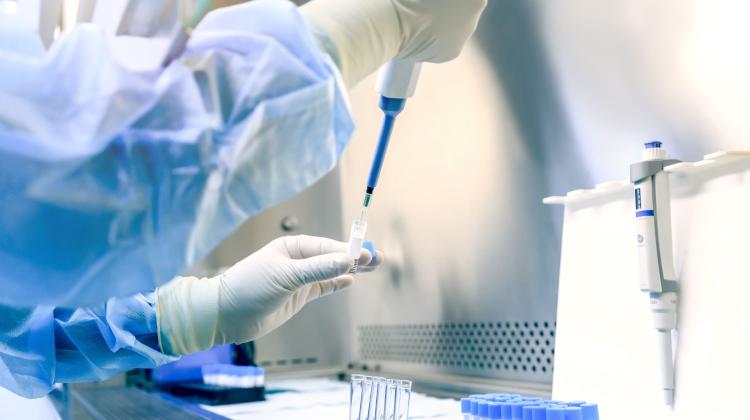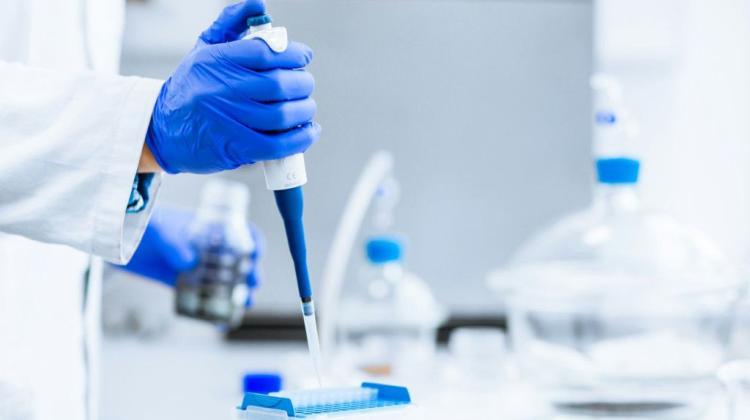Polish study could change standard of treating patients with plasma cell myeloma
 Credit: Adobe Stock
Credit: Adobe Stock
Scientists have identified a more effective method of maintenance therapy after autologous bone marrow transplantation in patients with plasma cell myeloma.
Researcher leader and president of the Polish Myeloma Consortium, Dr. Dominik Dytfeld, said: “We have shown that Polish haematology can contribute to improving the care of seriously ill cancer patients.”
He added that the results of the study are so promising that they can contribute to the introduction of a new standard of therapy of this patient group.
The researchers presented the results during ASCO 2022, the largest and most prestigious cancer conference in the world.
Dr. Dytfeld said: “Our presentation was qualified as the +Best of ASCO+. This is a great honour for me personally, and proof that Polish haematology is at the highest scientific level.”
The ATLAS study was designed and conducted by the Polish Myeloma Consortium, in collaboration with Professor Andrzej Jakubowiak from the University of Chicago. The goal was to compare, in the third phase study, the effectiveness of two types of maintenance therapy in patients with plasma cell myeloma after autologous bone marrow transplantation: standard treatment with lenalidomide (in the control group) and a completely new regimen, consisting in simultaneous administration of three drugs: carfilzomib with lenalidomide and dexamethasone (experimental group). One hundred and fifty-nine patients from Poland and 21 from the US took part in the study.
Dr. Dytfeld said: “It was the first such study in the world, no one has done anything like that before.
“We have proposed a new form of maintenance therapy and have proven that it is better than the standard therapy. Our results will certainly be an important voice in the discussion, and we hope that they will contribute to the quick introduction of a new standard, at least in the US.”
He added that currently a drug called lenalidomide is used in the maintenance therapy after autologous bone marrow transplantation. It is widely used in the US and Europe, but not in Poland. Dytfeld said: “This therapy significantly improves the results of treatment; patients live longer. Unfortunately, despite the fact that it has been registered in Europe for many years, it is still unavailable in Poland, not reimbursed.”
However, the results of the Polish Myeloma Consortium study show that therapy based on the KRd regimen (carfilzomib, lenalidomide, dexamethasone) is even more effective. After 33.8 months of observation the median progression free time in the KRd group was 59 months, while in the control group it was 41 months. In addition, in the KRd group there was a 44% reduction in the risk of death or progression.
Dytfeld continued: “For now, we have announced our results in reference to progression free time; we cannot yet discuss survival time because the observation period was too short, it was only three years.
“However, even these findings are so important that we have decided to present them. They can actually contribute to improving the situation of many patients.”
He added: “The US procedures for approving new therapies are much simpler, which is why therapies are made available to the patients quite quickly. In Europe, the procedure is much more complicated, so formal registration can take years.
“Another important thing that I would like to emphasize is that we were the first in the world to check the effectiveness of maintenance therapy in modulated conditions. This means that we modified its duration depending on various biological factors concerning individual patients. Until now, no one has been doing this. That part of our study was also a success.”
Currently, the Polish Myeloma Consortium continues the ATLAS project, and additionally conducts the twin COBRA study on patients with freshly diagnosed plasma cell myeloma. In addition to centres in Poland and the US, centres in Norway, Finland, Sweden and Lithuania also participate in the project.
PAP - Science in Poland, Katarzyna Czechowicz
kap/ zan/
tr. RL
Przed dodaniem komentarza prosimy o zapoznanie z Regulaminem forum serwisu Nauka w Polsce.
















